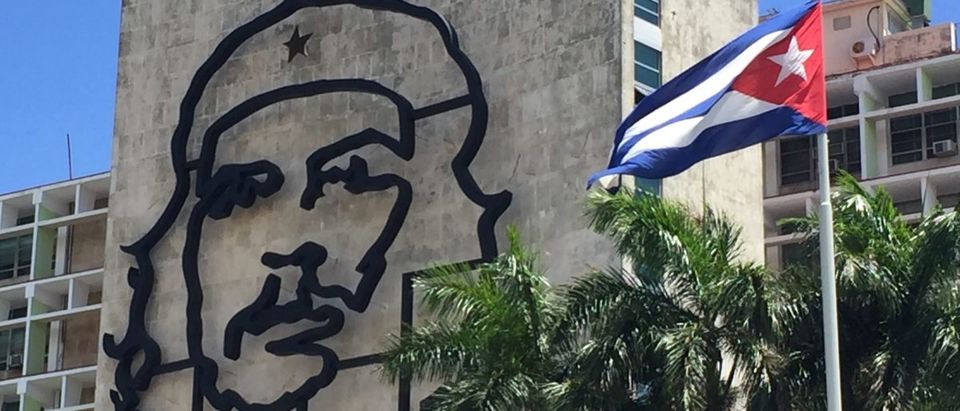Few figures in history are as over-criticized and over-praised as Cuban revolutionary Che Guevara. Democratic presidential candidate Bill de Blasio is being crucified for telling Miami union workers “hasta la victoria siempre” (or “until victory always”), a phrase linked to Guevara. But conservatives and anti-Castro Cubans overstate both the repression of Castro’s regime and Guevara’s role.
After the revolution, tribunals tried officials who were responsible for widespread torture and the killing of as many as 20,000 Cubans during the Batista dictatorship. Passions ran high, and Cubans wanted justice. Guevara’s critics have long focused on his five months as commander of the La Cabaña Fortress prison, where he was one of those who reviewed appeals from those convicted. In the first half of 1959, 600 were executed in Cuba. Between 55 and 105 of them were executed at the fortress under Guevara. Author Jon Lee Anderson noted:
I have yet to find a single credible source pointing to a case where Che executed ‘an innocent’. Those persons executed by Guevara or on his orders were condemned for the usual crimes punishable by death at times of war or in its aftermath … rape, torture or murder … my research spanned five years, and included anti-Castro Cubans among the Cuban-American exile community in Miami and elsewhere.
Critics also ignore the considerable progress the Castro/Guevara regime made possible. Guevara led the Literacy Campaign — a massive effort to educate Cuba’s poor peasantry — and it succeeded in raising Cuba’s literacy level from 65 percent to 96 percent. Its biggest beneficiaries were Afro-Cubans, who had been kept at the lowest level of society and were victims of Jim Crow-style segregation. Castro abolished legal segregation soon after coming to power.
According to the World Health Organization, Cuba’s life expectancy and infant mortality rates are among the best in Latin America and similar to those in the United States. The United Nations’ 2015 Human Development Index ranks Cuba among the highest in Latin America. According to the World Bank, Cuba’s gross domestic product per capita is better than that of most comparable countries.
We’ve long been told that the many Cubans who came or desire to come to the U.S. seek to flee Cuban communism. Yet the same desire to emigrate here exists throughout Latin America. For example, nearly 50 percent of all Puerto Ricans born in Puerto Rico, and three million from the Northern Triangle countries, are living in America.
Life is hard in Cuba, and the deterioration of Venezuela, a crucial trading partner, has made things worse. I’ve traveled in Cuba and seen the shortages and rationing first-hand. Yet millions living in shantytowns throughout Latin America need and want what Cubans have — free medical care and education, steady employment, and subsidized housing and utilities.
Guevara is widely admired in Latin America, particularly among the left. Yet his government refused to allow the workers and peasants — in whose name it claimed to rule — to have any real political power. The U.S. government and Cuban exile groups committed terrorism and economic sabotage in Cuba, and tried numerous times to assassinate or overthrow Castro. But while the regime was often justified in its measure against these elements, it also at times repressed groups that had been supportive of the revolution’s goals and programs.
Guevara is also admired in Cuba, where his face has long been ubiquitous on posters and murals. His devotion and self-sacrifice are used to urge Cubans to reject the listless, “we pretend to work, the government pretends to pay us” work ethic sometimes prevalent in socialist societies. Guevara being dead, Castro could canonize him without worrying he could become a rival.
But there is a remarkable thing about Guevara which his detractors miss. By 1965 Guevara had the world at his feet. He was second in command in a regime admired by many. He had conducted diplomacy in dozens of countries. And he was young, handsome and well-spoken. He was an outspoken advocate for the third world and the poor, and many revered him for it. Almost anybody else — I can’t think of another example in history — would’ve stayed at the top, used his power to promote his vision, and/or enjoyed the good life.
Instead, Guevara risked his life — first in the Congo, then in Bolivia — trying to lead a rural guerrilla war and revolution as he had done in Cuba. In Bolivia it cost him his life.
This flawed man was the real deal. Perhaps that’s why so many defenders of the unjust order of today’s world despise him.
Glenn Sacks teaches at James Monroe High School in the Los Angeles Unified School District. He holds a master’s degree in Latin American studies and has traveled to Cuba.
The views and opinions expressed in this commentary are those of the author and do not reflect the official position of The Daily Caller.


